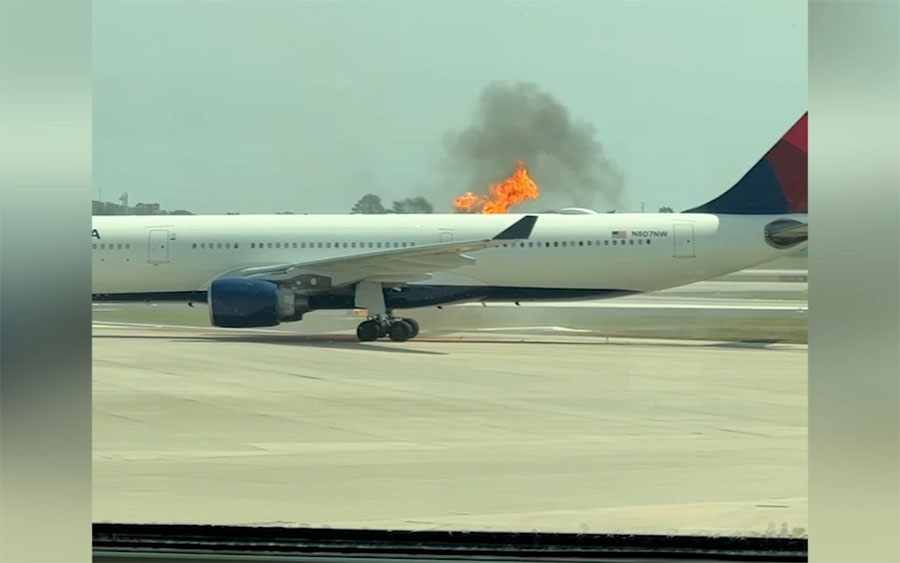Photo Credit: Getty Images
Smoke and flames erupted from the engine of Delta Air Lines Flight 1213 on Monday, forcing nearly 300 passengers to evacuate down emergency slides at Orlando International Airport. The Airbus A330, bound for Atlanta, had just backed away from the gate at 11:15 a.m. EST when the incident occurred.
"The fire was contained and is out," an Orlando airport spokesperson told CBS News. The Federal Aviation Administration confirmed in a statement that the smoke originated from an engine fire, prompting an immediate emergency response.
Fire trucks quickly converged on the aircraft, with emergency personnel deploying firehoses to extinguish the flames. An ambulance also approached the scene as passengers evacuated the aircraft, though authorities reported no injuries among the 282 passengers and 12 crew members.
"We appreciate our customers' cooperation and apologize for the experience," Delta said in a statement. "Nothing is more important than safety and Delta teams will work to get our customers to their final destinations as soon as possible."
Social media videos captured dramatic scenes of smoke billowing from the right engine and passengers sliding down inflatable emergency chutes onto the tarmac. After evacuation, passengers were escorted back to the terminal to await another aircraft for their journey to Atlanta.
The incident marks another concerning event in what has been a troubling year for aviation safety in North America. On February 17, Delta Flight 4819 from Minneapolis-St. Paul crashed and overturned while landing at Toronto's Pearson International Airport, though all 80 passengers survived.
Sara Nelson, president of the Association of Flight Attendants-CWA, credited passenger compliance with safety protocols for the positive outcome in the Toronto incident. "The seatbelts were key to everyone's safe evacuation on the flight and no fatalities," Nelson told People. "If someone had not been wearing their seatbelt in this crash, the likelihood of a death would become very high."
Earlier this year, a more tragic outcome occurred when 67 people died after a passenger plane and military helicopter collided near Washington DC's Ronald Reagan airport on January 29. Following this incident, crash investigators recommended restricting helicopter flights in certain areas surrounding the airport.
The FAA has launched an investigation into the Orlando engine fire, adding another incident to their growing caseload of aviation safety concerns in 2025. As passengers from Flight 1213 continue their delayed journeys, this event serves as a stark reminder of the critical importance of emergency preparedness and rapid response protocols in aviation—systems that, when properly executed, transform potential tragedies into successful evacuations.


